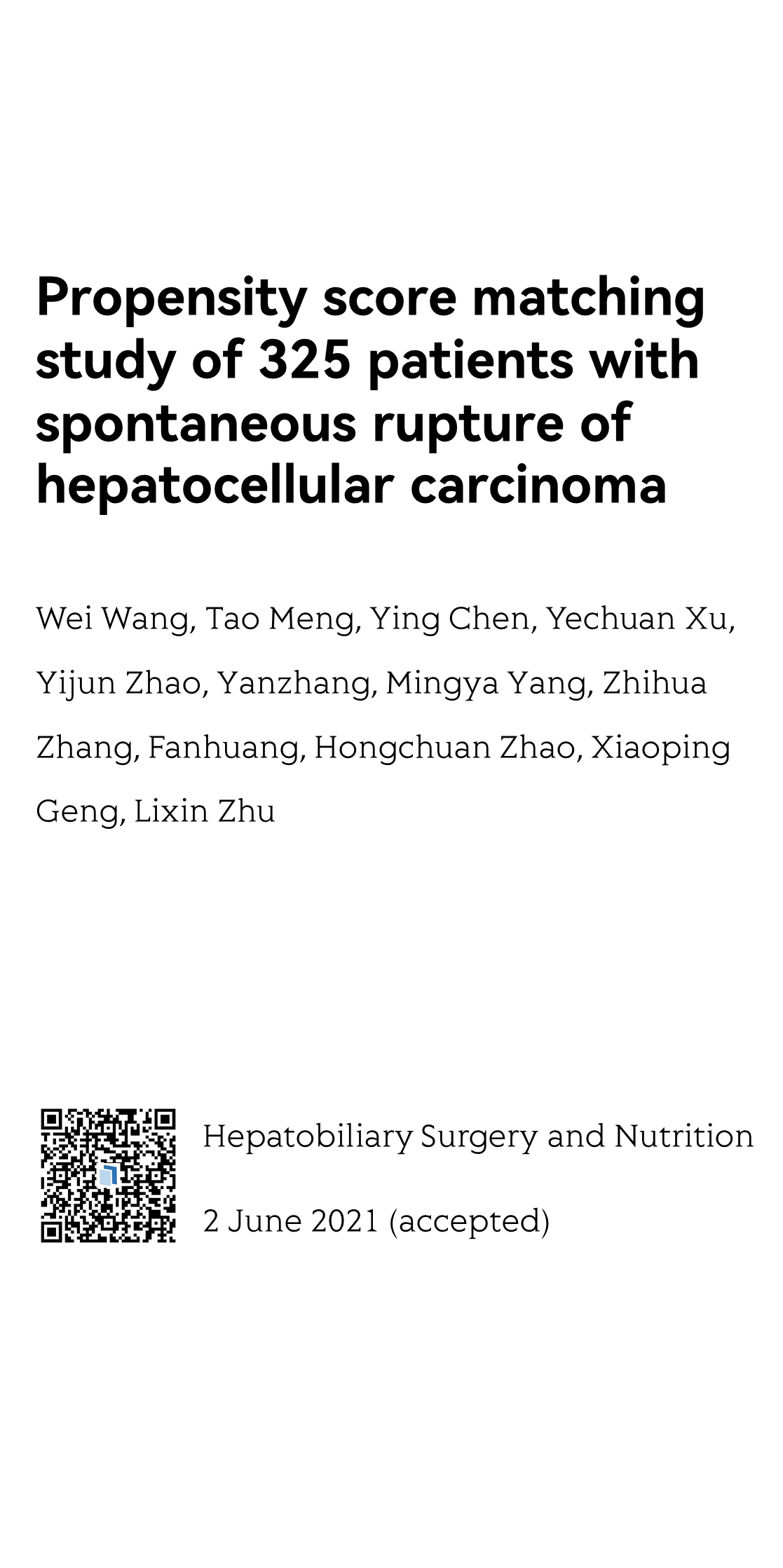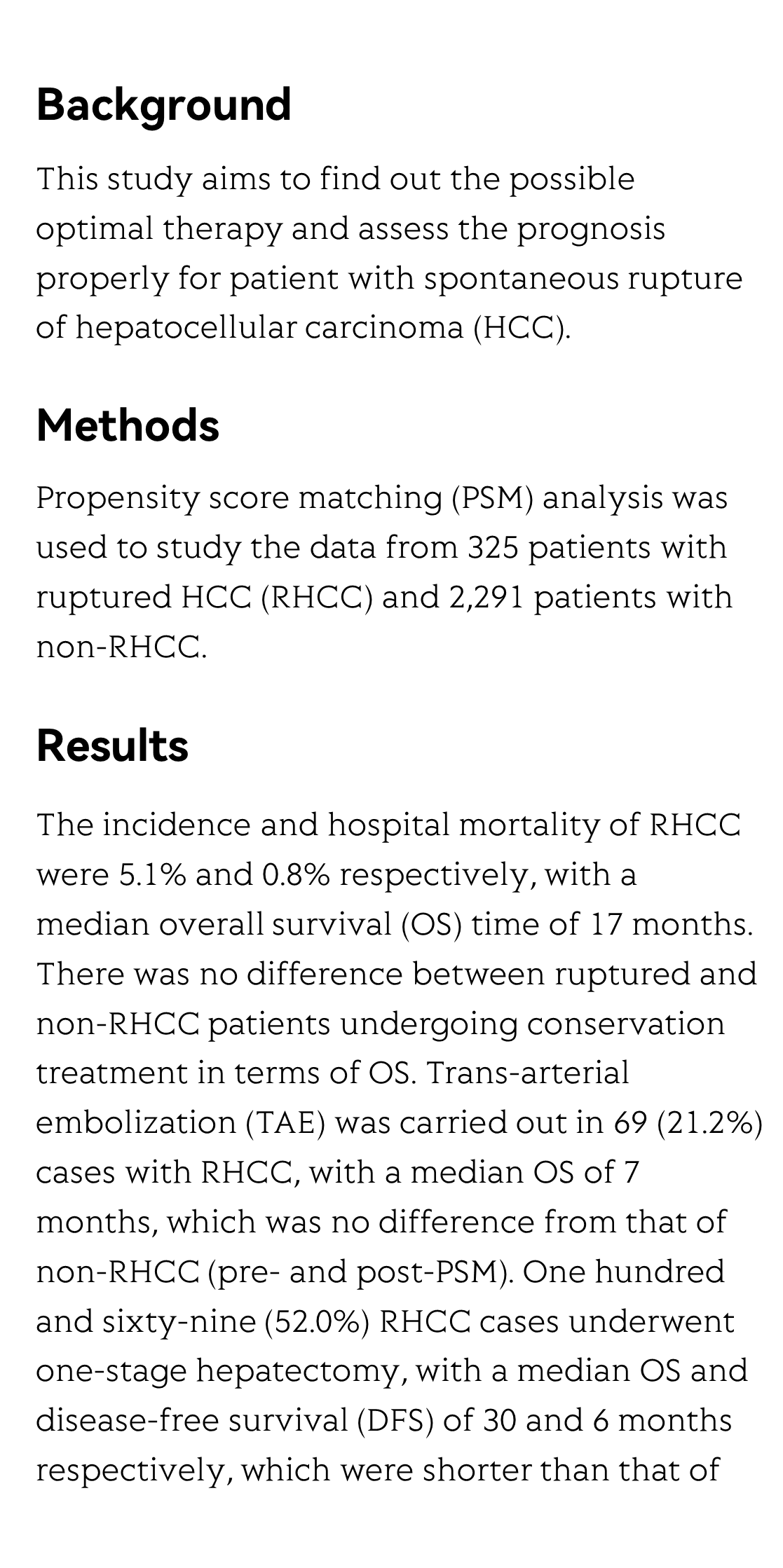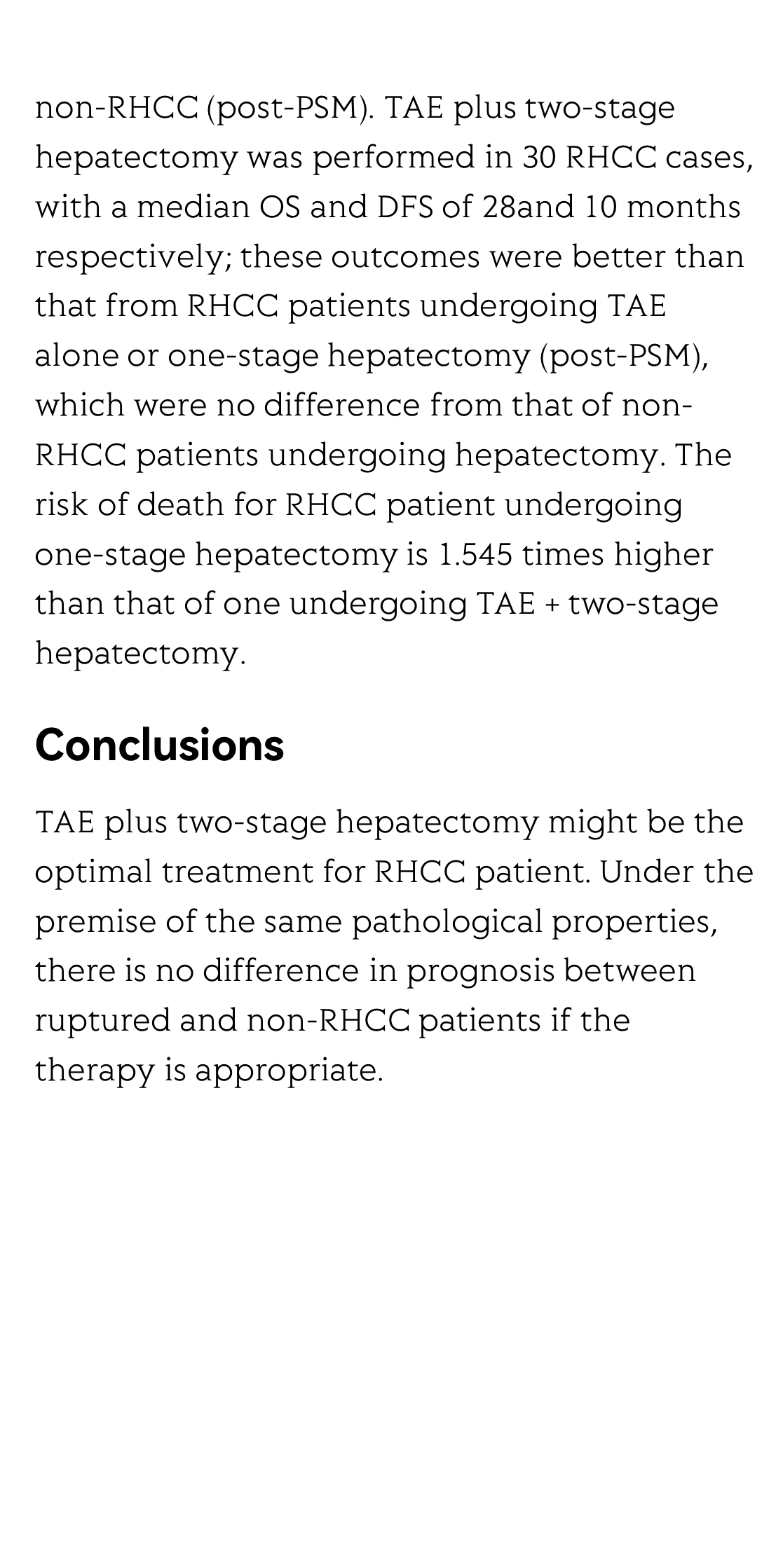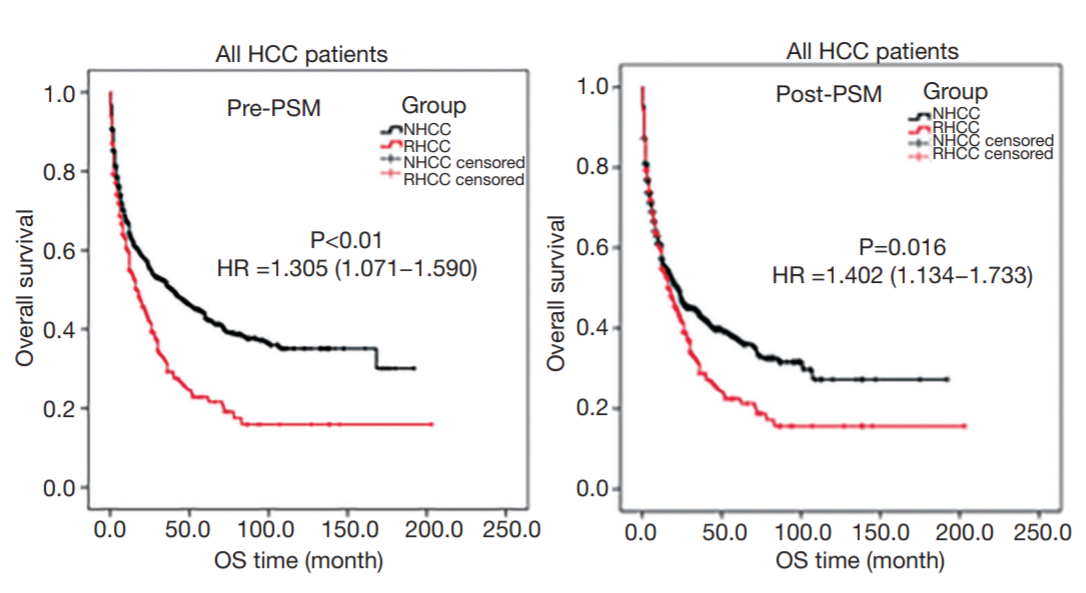(Peer-Reviewed) Propensity score matching study of 325 patients with spontaneous rupture of hepatocellular carcinoma
Wei Wang 王伟 ¹, Tao Meng ¹, Ying Chen ¹, Ye-Chuan Xu 许业传 ¹, Yi-Jun Zhao 赵义军 ¹, Yan Zhang ¹, Ming-Ya Yang ¹, Zhi-Hua Zhang 张志华 ², Fan Huang 黄帆 ¹, Hong-Chuan Zhao 赵红川 ¹, Xiao-Ping Geng 耿小平 ¹, Li-Xin Zhu 朱立新 ¹
¹ Department of General Surgery, the First Affiliated Hospital of Anhui Medical University, Hefei, China
中国 合肥 安徽医科大学第一附属医院普外科
² Department of Statistics, Anhui Medical University, Hefei, China
中国 合肥 安徽医科大学 流行病与卫生统计学系
Hepatobiliary Surgery and Nutrition
, 2021-06-02
Background: This study aims to find out the possible optimal therapy and assess the prognosis properly for patient with spontaneous rupture of hepatocellular carcinoma (HCC).
Methods: Propensity score matching (PSM) analysis was used to study the data from 325 patients with ruptured HCC (RHCC) and 2,291 patients with non-RHCC.
Results: The incidence and hospital mortality of RHCC were 5.1% and 0.8% respectively, with a median overall survival (OS) time of 17 months. There was no difference between ruptured and non-RHCC patients undergoing conservation treatment in terms of OS. Trans-arterial embolization (TAE) was carried out in 69 (21.2%) cases with RHCC, with a median OS of 7 months, which was no difference from that of non-RHCC (pre- and post-PSM). One hundred and sixty-nine (52.0%) RHCC cases underwent one-stage hepatectomy, with a median OS and disease-free survival (DFS) of 30 and 6 months respectively, which were shorter than that of non-RHCC (post-PSM). TAE plus two-stage hepatectomy was performed in 30 RHCC cases, with a median OS and DFS of 28 and 10 months respectively; these outcomes were better than that from RHCC patients undergoing TAE alone or one-stage hepatectomy (post-PSM), which were no difference from that of non-RHCC patients undergoing hepatectomy. The risk of death for RHCC patient undergoing one-stage hepatectomy is 1.545 times higher than that of one undergoing TAE + two-stage hepatectomy.
Conclusions: TAE plus two-stage hepatectomy might be the optimal treatment for RHCC patient. Under the premise of the same pathological properties, there is no difference in prognosis between ruptured and non-RHCC patients if the therapy is appropriate.
Review for wireless communication technology based on digital encoding metasurfaces
Haojie Zhan, Manna Gu, Ying Tian, Huizhen Feng, Mingmin Zhu, Haomiao Zhou, Yongxing Jin, Ying Tang, Chenxia Li, Bo Fang, Zhi Hong, Xufeng Jing, Le Wang
Opto-Electronic Advances
2025-07-17
Multiphoton intravital microscopy in small animals of long-term mitochondrial dynamics based on super‐resolution radial fluctuations
Saeed Bohlooli Darian, Jeongmin Oh, Bjorn Paulson, Minju Cho, Globinna Kim, Eunyoung Tak, Inki Kim, Chan-Gi Pack, Jung-Man Namgoong, In-Jeoung Baek, Jun Ki Kim
Opto-Electronic Advances
2025-07-17
Non-volatile tunable multispectral compatible infrared camouflage based on the infrared radiation characteristics of Rosaceae plants
Xin Li, Xinye Liao, Junxiang Zeng, Zao Yi, Xin He, Jiagui Wu, Huan Chen, Zhaojian Zhang, Yang Yu, Zhengfu Zhang, Sha Huang, Junbo Yang
Opto-Electronic Advances
2025-07-09
CW laser damage of ceramics induced by air filament
Chuan Guo, Kai Li, Zelin Liu, Yuyang Chen, Junyang Xu, Zhou Li, Wenda Cui, Changqing Song, Cong Wang, Xianshi Jia, Ji'an Duan, Kai Han
Opto-Electronic Advances
2025-06-27
Operando monitoring of state of health for lithium battery via fiber optic ultrasound imaging system
Chen Geng, Wang Anqi, Zhang Yi, Zhang Fujun, Xu Dongchen, Liu Yueqi, Zhang Zhi, Yan Zhijun, Li Zhen, Li Hao, Sun Qizhen
Opto-Electronic Science
2025-06-25
Observation of polaronic state assisted sub-bandgap saturable absorption
Li Zhou, Yiduo Wang, Jianlong Kang, Xin Li, Quan Long, Xianming Zhong, Zhihui Chen, Chuanjia Tong, Keqiang Chen, Zi-Lan Deng, Zhengwei Zhang, Chuan-Cun Shu, Yongbo Yuan, Xiang Ni, Si Xiao, Xiangping Li, Yingwei Wang, Jun He
Opto-Electronic Advances
2025-06-19







